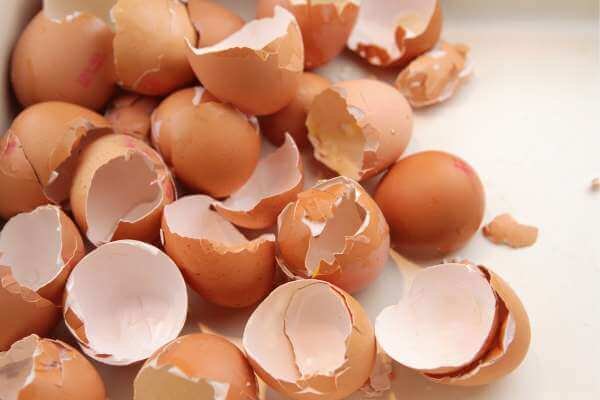When it comes to introducing new foods into your puppy’s diet, eggs can be a nutritious addition that provides a great source of protein and essential nutrients. However, pet owners often wonder about the best way to include eggs and at what age it’s safe to do so. This article will explore at what age can puppies eat eggs and the benefits and potential risks of feeding eggs to puppies.
The Nutritional Value of Eggs in a Puppy’s Diet
Eggs are a powerhouse of nutrition, containing essential amino acids, fatty acids, and vitamins A and B, which are crucial for your furry friend’s cell growth, healthy skin, and immune function. An average egg offers about six grams of protein and is also a good source of healthy fats that contribute to a balanced diet.
Introducing Eggs to Your Puppy
Puppies can start eating solid food, including eggs, from around three to four weeks of age, as they begin weaning off their mother’s milk. It’s important to start with a small amount to monitor for any allergic reaction or upset stomach. The safest way to feed eggs to your puppy is by cooking them thoroughly to eliminate the risk of salmonella and other harmful bacteria.
Can Dogs Eat Raw Eggs?
Potential Benefits of Raw Eggs for Dogs
- Nutrient-Rich: Raw eggs are an excellent source of protein, essential fatty acids, vitamins, and minerals that can contribute to a dog’s overall health.
- Natural Diet: Some proponents of raw feeding argue that dogs in the wild would naturally consume raw eggs, suggesting that it’s a natural part of their diet.
Associated Risks with Feeding Raw Eggs to Dogs
- Salmonella: One of the biggest concerns with raw eggs is the risk of salmonella contamination, which can lead to salmonellosis, a condition characterized by fever, vomiting, diarrhea, and lethargy.
- Biotin Deficiency: Raw egg whites contain avidin, an enzyme that can interfere with the absorption of biotin, a vitamin that supports healthy skin, metabolism, cells, and digestion. While biotin deficiencies are rare, they can occur if dogs consume raw egg whites regularly.
- Bacteria: As eggs age, they can harbor bacteria that are harmful to dogs. It’s crucial to ensure that any eggs fed to dogs are fresh to minimize this risk.
Cooked vs. Raw Eggs
Cooked eggs are widely recommended by veterinarians and canine nutritionists for several reasons:
- Safety: Cooking eggs thoroughly eliminates the risk of foodborne illnesses like salmonella, which can be present in raw eggs.
- Digestibility: The cooking process makes the proteins in eggs more accessible for digestion, ensuring your dog gets the maximum nutritional benefits.
- Biotin Absorption: Cooking neutralizes avidin, an enzyme in raw egg whites that can interfere with the absorption of biotin, a vitamin important for healthy skin and coat.
The Risks of Raw Eggs
While some pet owners advocate for a raw diet, including raw eggs, there are notable risks:
- Bacterial Contamination: Raw eggs can contain bacteria like E.coli and Salmonella, which can lead to food poisoning in both dogs and humans.
- Nutrient Inhibition: As mentioned, avidin in raw egg whites can prevent the absorption of biotin, potentially leading to a deficiency.
- Allergic Reactions: Dogs can be allergic to various protein sources, including eggs, and raw eggs might trigger a stronger reaction.
How to Serve Cooked Eggs
If you decide to include cooked eggs in your dog’s diet, here are some tips:
- Boiled or Scrambled: Serve eggs boiled or scrambled without any added salt, butter, or milk, which can be harmful to dogs.
- Portion Control: Be mindful of the portion size. The amount of eggs a dog can eat varies between breeds and individual health conditions.
- Consult Your Vet: Always check with your veterinarian before introducing eggs into your dog’s diet, especially if they have existing health issues.
While raw diets are popular among some dog owners, raw eggs can pose health risks such as biotin deficiency and food poisoning. Cooking eggs can prevent these issues and is the recommended method of cooking eggs for your canine companion. Boiled eggs or scrambled eggs without added salt or seasonings are a great addition to your puppy’s diet.
Can puppy eat egg shell?

Yes, puppies can eat eggshells. Eggshells are a good source of calcium, which is important for the development of strong bones and teeth in growing puppies. However, it’s essential to prepare the eggshells properly to ensure they are safe for your puppy to consume.
Here are some guidelines for feeding eggshells to puppies:
- Grind the Eggshells: To prevent any risk of choking or injury from sharp edges, it’s best to grind the eggshells into a fine powder before adding them to your puppy’s food.
- Serve in Small Amounts: Eggshells should be given in moderation as part of a balanced diet. A small sprinkle of eggshell powder can be a healthy supplement for extra calcium.
- Ensure Freshness: Use eggshells from fresh eggs to minimize the risk of bacterial contamination.
- Consult Your Vet: Before introducing eggshells into your puppy’s diet, it’s a good idea to consult with your veterinarian, especially if your puppy has specific health needs or dietary restrictions.
Remember, while eggshells can be beneficial, they should not be the sole source of calcium for your puppy, and they lack other necessary nutrients like phosphate and magnesium. Therefore, they should complement a nutritionally complete puppy food. Always introduce any new food gradually and keep an eye out for any signs of digestive upset or allergic reactions.
Frequency and Quantity
Eggs should be given as an occasional treat, not as a regular diet. The American Kennel Club suggests that treats like eggs should not make up more than 10% of your pet’s daily calories. For most puppies, a whole egg may be too much, so it’s best to start with a quarter or half an egg, depending on their size.
Potential Risks and Considerations
While eggs are a great source of nutrition, there are potential risks to consider. Overfeeding can lead to weight gain, and some puppies may have an allergic reaction to eggs. Always consult your local veterinarian before making significant changes to your puppy’s diet, especially if they have medical conditions or food allergies.
Can dogs be allergic to eggs?
Yes, dogs can be allergic to eggs. While it’s not the most common allergy, some dogs may react to proteins found in both egg whites and yolks. The symptoms of an egg allergy in dogs can include digestive issues, skin rashes, ear infections, and excessive drooling. If you notice any of these symptoms after your dog consumes eggs, it’s important to consult a veterinarian. They can provide a proper diagnosis and recommend a dietary plan that excludes eggs to prevent further allergic reactions. It’s also worth noting that allergic cross-reactivity is rare but possible, meaning if a dog is allergic to hen’s eggs, they might also react to eggs from other domesticated birds. Always introduce new foods like eggs into your dog’s diet gradually and under the guidance of a vet to monitor for any adverse reactions.
Conclusion of At What Age Can Puppies Eat Eggs

Eggs can be a healthy addition to your puppy’s diet when introduced properly and in moderation. They offer numerous health benefits, including essential vitamins and minerals for your dog’s overall health. Remember to consult with your vet and follow their guidance to ensure your four-legged friends enjoy the health benefits of eggs safely and happily.
This guide provides a general overview, but every puppy is unique. For personalized advice, always check with your local veterinarian to determine the best dietary choices for your puppy’s specific needs and health issues.
Read also:
How to Get Dog to Eat Vegetables: 5 Sneaky Strategies
Best Multivitamin for Dogs on Homemade Diet: How to Choose and Use Them

